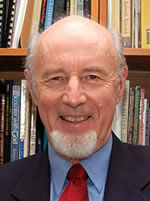The Bible has hundreds of references to money, more than on many of the subjects frequently expounded in sermons and Bible classes. The difficulty is that the Bible has two voices on money, two perspectives, one indicating it is a great blessing and another, mostly in the New Testament, a spiritually damning problem. John Schneider asks, “Are we doomed forever to a dialect of dissonance and paradox? The harmony is difficult to hear, but with care it can be done.” And it is done by recognizing the two sides of truth in this matter and choosing, as we shall see, to view money as stewardship on behalf of the kingdom of God.
On one hand money is a blessing (Deut 30:9; Prov 22:4). This is a principle expounded by the examples of Abraham, Job and Solomon, though it is important to note that each depended on God rather than their wealth (Gen 13:8-18; Job 1:21, in contrast to those who praised the Lord because they were rich (Zech 11:5) but were soon to be judged. Money is a blessing to have and a blessing to use. As a case in point consider one mention of tithing in the Old Testament. Not many church leaders would dare preach on Deuteronomy 14:24-26. There Moses does not invite people to give their tithes and offerings to the temple. When planning to attend the feast in Jerusalem people living some distancefrom the city were to take the tithe (one-tenth) of produce and animals and convert it money (silver). That money was to be used in Jerusalem to buy “whatever you like, cattle, sheep, wine or other fermented drink, or anything your wish. Then you and your houshold shall eat there in the presence of the Lord your God and rejoice” (14:24-26). What an image of the kingdom of God—an enjoyable celebration and party in the presence of God with good food and drink!
Money then is a kind of sacrament, a means of grace through material things. The Old Testament affirms that God is the giver of wealth (Prov 3:16; 1 Sam 2:7-8; Eccl 5:19; Hos 2:8). He is the true owner, the true proprietor and we are merely stewards (Prov 3:9). Jacques Ellul notes that this produces the “scandal of wealth” whereby God sometimes gives wealth to the wicked (Psa 73:12-13; Psa 62:10; Job 21:7-21). Continuing in his reflection, Ellul declares that as the sacrament of the Old Covenant wealth declares (contrary to being the result of "our hard-earned labour") that (1) wealth is a free gift of God; (2) that as a sign of God's grace it is given generously; and (3) it points to the final consummation when our wealth will be taken into the Holy City (Isa 60:3; Rev 21:24-26). With wealth the glory of the New Jerusalem is present in our midst. Commenting on this Ellul contends: “We are therefore called to use our wealth so that our actions announce to the watching world that election is free, that grace is abundant, that a new creation is promised and that God owns all things." But there is another voice in Scripture, not only in the teaching of Jesus but even within the Old Testament.
On the other hand money can be debilitating.The Old Testament affirms that the pursuit of wealth for its own sake is a vain, destructive thing leading to self-destructive autonomy (Prov 30:8; 23:4-5; 28:20: Psa 49:6-7; Prov 30:8-9; Hos 12:8). Proverbs 10:15 (“The wealth of the rich is their fortified city.”) is illuminated by Proverbs 18:11 (“they imagine it an unscalable wall”), indicating that wealth is an illusionary security. Wealth will not satisfy (Psa 49:6-7; Eccl 5:10). This is the dark side to handling money. Most expressive of the negative effect of money was Jesus, but his message was not an anti-money message. Essentially the message of Jesus was that all of life, including our satewardship of money, must be brought under the kingdom of God.
